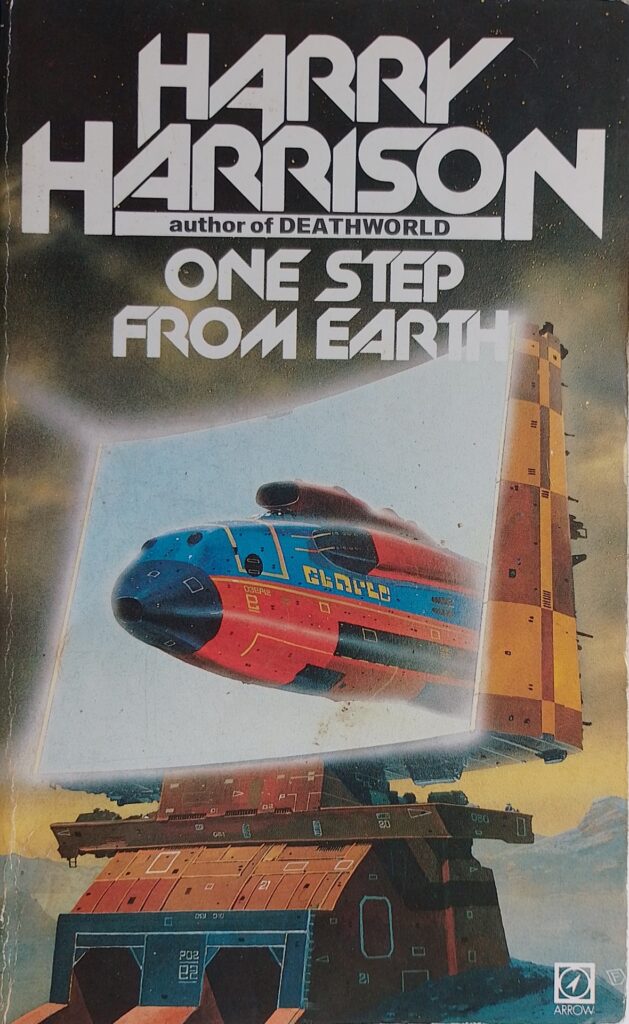First published 1970. Arrow paperback, 1981. pp 210 c.50,000 words.
What if we could use some device to transport us, and anything else, instantly to wherever a receiver had been set up? Harrison explores the possibilities of this notion in a set of otherwise unrelated stories, from the founding of the idea through to the far future when humans have spread across the galaxy.
The first story is set in 1990. Earth is in that classic state of science fiction of the period in which this was written – grossly over-populated. Yet somehow the atmosphere reeks more of the 1950s. There are two people present at the opening, both men, of course. One smokes a pipe, and they address each other as Dr. and Mr. The two observe some visual images being beamed back from a spacecraft that has just landed on Mars, and the picture is ‘very blurred’ and the two have to view through ‘interference and snow’ [p3]. They are witnessing the use of the first matter instantaneous receiver landed there. A rat is sent through and lives, until the cold gets it. Within hours one of the men follows with a couple of others. Their job is to receive and set up a transmitter, for they are stuck on Mars until they can. It is quite fun, but totally unrealistic. Why not send a robot to set up the transmitter before risking men?
The anachronism and casualness problems are repeated in most of the other stories. Smoking abounds, even in a sealed spacecraft [p28], as does the consumption of alcohol [p32]. Training doesn’t seem to have been done in space-suits in one story, which are required for the mission [p12]. For all the fancy tech, ‘recording tape’ is still in use [p27]. A ‘check’ is still in use in the far future [p94], as is a ‘pistol’ [p114]. To get information one has to consult a ‘computer terminal’ [p203], although to be fair, all information is accessible, anticipating the internet and world-wide web.
The stories follow a logical pattern: considering ways the device might be used, and how it in turn influences the development of humankind. They investigate exploration, scientific research, war, playing God, prison, plague and allergy, policing, business, and the eventual fate of our species. All the stories are inventive and entertaining, and to a slight degree thought-provoking. Such an invention would undoubtedly have a transformative effect.
Harrison writes clearly, making for easy reading. There are some excellent set-pieces, notably a description of a space battle, which is reminiscent of scenes in Heinlein’s ‘Starship Troopers’ from 1959.
This is entertaining stuff, but it doesn’t come to any profound conclusions. Yes, technology will change us, as it always has from the invention of agriculture onwards.
Wikipedia biography of Harrison: https://en.wikipedia.org/wiki/Harry_Harrison_(writer)
Wikipedia summary of the book: https://en.wikipedia.org/wiki/One_Step_from_Earth
Others’ reviews of the book: https://www.goodreads.com/book/show/710843.One_Step_from_Earth?ref=nav_sb_ss_1_20
© William John Graham, September 2024

